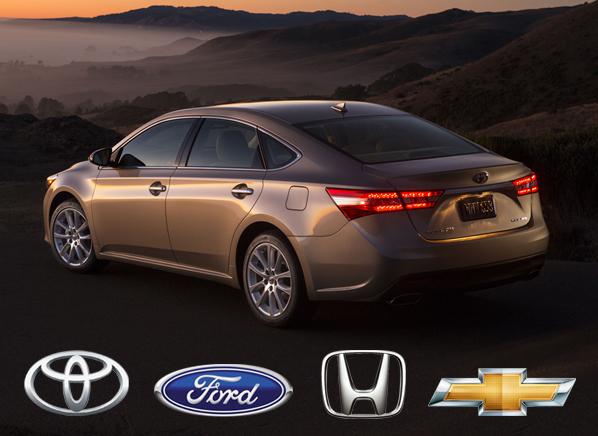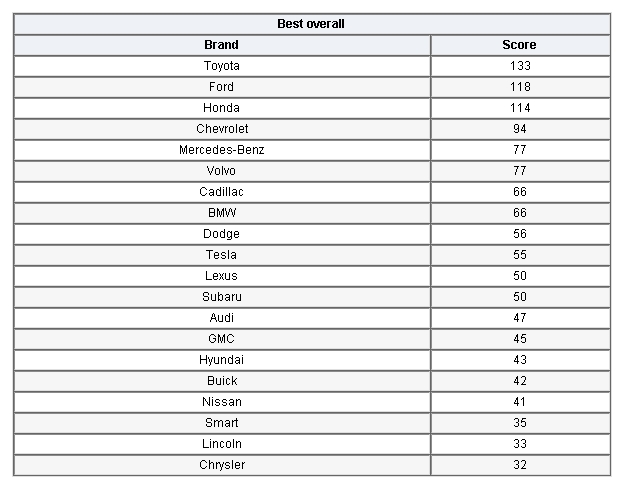When it comes to how people perceive car brands, Toyota, Ford, Honda, and Chevrolet stand above all others, based on the 2013 Car Brand Perception Survey, conducted by the Consumer Reports National Research Center.

The survey scores reflect how consumers perceive each brand in seven categories: quality, safety, value, performance, design/style, technology/innovation, and environmentally friendly/green. Combining those factors gives us the total brand-perception score, as shown in the chart below. While the scores reflect a brand's image in consumers' minds, they do not necessarily represent the actual qualities of any brand's vehicles.
Toyota, Ford, Honda, and Chevrolet scored well above the second-tier performances in our survey. When looking past sixth-ranked Volvo, many brands are clustered close together, showing that consumers are identifying with more brands than before, making it harder for most car companies to stand out from the competition. It also signals that buyers may be seeing merits in more brands, rather than so closely identifying single brands as "owning" a given category.

As the full report on the 2013 Car Brand Perception Survey shows, some brands are well respected in several categories, while others rest their brand image on excelling in fewer factors.
For instance, Volvo's score is based quite heavily on its dominating the safety category. For consumers placing a top priority on safety, this brand stands out. In reality, many companies offer excellent occupant protection and just as many cutting-edge safety features.
Overall, the top brands excel in many areas and aren't as pigeonholed as the more single-factor-focused brands. Toyota and Ford, for instance, stand out in several categories, giving them strong overall scores. But across the board, competition for brand mindshare is tough.
Because perception often differs from reality, it is important for shoppers to research the makes and models carefully, rather than rely on fuzzy impressions and word-of-mouth recommendations. Brand perception is often a trailing indicator, and every product line has a spectrum of performance—not every model represents the brand's best efforts.
For this report, the Consumer Reports National Research Center conducted a random, nationwide telephone survey of 2,034 adults from Dec. 6-16, 2012, and collected survey data from 1,764 adults in households that had at least one car.





